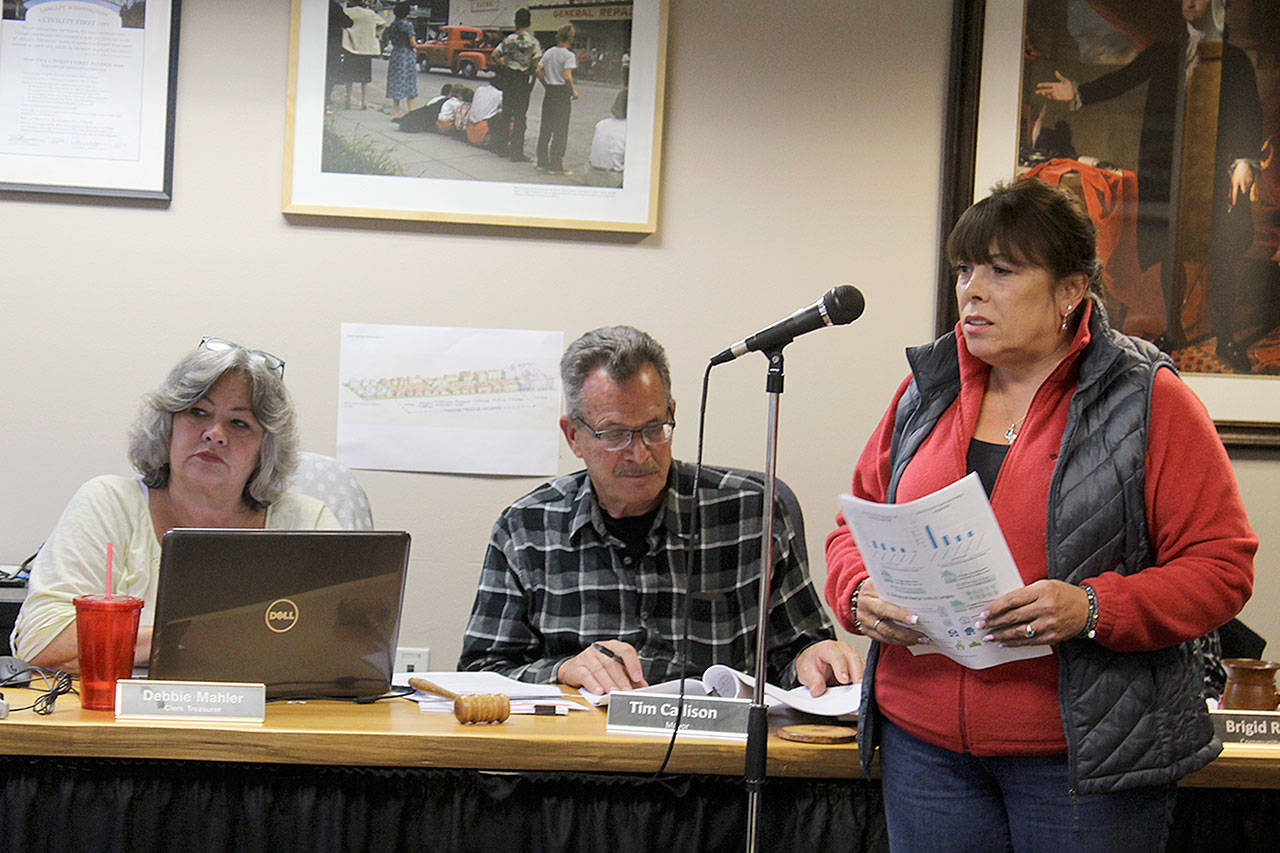Langley officials continue to wrestle with how to best rein in residential short-term rentals that have had few rules to follow but a wide-open territory of opportunity.
Most vexing is how to balance the need of multi-night rentals for Langley’s booming tourism business against its need for long-term rental options for residents, many whom work in the tourist trade.
Last summer, the city council placed a moratorium on new applications for short-term rentals while new regulations were sorted out.
It’s estimated there are about 56 operators of short-term rentals in Langley based on advertising of website services such as Airbnb, Homeaway, VRBO and Vacasa; 75 percent are operating without a business license.
“We want to make sure we’re collecting the lodging tax and be sure we’re not creating a big burden on the administrative staff,” Brigid Reynolds, director of community planning, told the city council Monday.
For the past year, the planning advisory board has studied other cities wrestling with the same problem, exploring “how do we put some parameters around this so we don’t have short-term rentals every second house,” Reynolds said.
The committee recommends categorizing short-term rentals into four categories, depending on a variety of factors. They would all require a business license, paying an application fee to the city and annual health, fire and safety inspections.
Requiring a license from the city to rent out an entire house as a short-term rental property, or vacation rental by owner, VRBO, would be known as Type 4. Such rentals are not currently permitted in Langley’s residential zoning districts, but they can easily be found on an internet search.
Limiting the number of whole houses allowed for vacation rentals would be based on a-still-to-be-determined percentage of the 755 total homes in Langley.
The council approved hiring the firm Host Compliance that specializes in short-term rental tracking and monitoring at an annual cost of $5,840.
Debate swirls around whether homeowners would have to apply for a license every year to continue their vacation home rentals or be given a multi-year license that gives assurances of continuity to their investment. Providing overnight lodging of 30 consecutive days or less is considered short-term rentals.
There are many reasons why people have chosen to benefit from the ever-expanding online overnight rental offerings, Reynolds pointed out. Some purchased second homes with the intention of living in them following retirement and use money made from short-term visitors to pay the mortgage; others are empty nesters converting extra bedrooms into weekend money-makers.
At a public hearing last month, residents voiced concern over some of the down sides of short-term rentals, such as trash in the yard, additional cars taking up parking spaces, noise and not having steady neighbors. Others regarded short-term rentals as the only affordable and available option for their own family and friends to come visit them in Langley.
Another public hearing on proposed short-term regulations is scheduled for 3 p.m., Wednesday, June 5 before the council takes an expected final vote in mid-June.
April Sanders pointed out that families with children are most likely to rent an entire house.
“They want a separate room for their children to take a nap, washing machines to wash their clothes, they want to be able to cook their meals, and for everybody to be able to gather in a living room around a TV,” said Sanders, owner of Whidbey Island Vacation Rentals.
Sanders pointed out that short-term rental guests spend hundreds of dollars a day on local food and wine and contribute to local sales taxes.
The State Department of Revenue requires that property owners renting out homes, rooms, condominiums, time shares, cabins, camping site or RV sites for less than 30 consecutive days be registered with the state so retail sales tax and applicable lodging taxes are collected.
The requirement applies to property owners advertising rentals through online marketplaces or if they are using a property manager, according to the state website.



